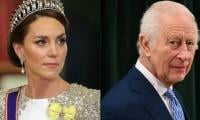played a crucial role in evolving socioeconomic and political discourse for the larger benefit of society and public. But, he maintained, media workers, especially those employed in the provinces, were often untrained and underpaid. “In addition to these challenges, threats and violent attacks against journalists continued in Pakistan.”
Sorensen noted that Pakistani youth and media combining together would become a highly influential force, which could be used for bringing improvement to society and public affairs to a great extent.
He said the Danish government would also provide support to improve working conditions, provision of due privileges, safety and security to the media personnel in Pakistan while the media of the country should also be equally supportive to strengthening the democratic order.
Also speaking on the occasion, former information minister Javed Jabbar said the media commission appointed by the Supreme Court of Pakistan some years back had given some 40 proposals for improving and upgrading the functioning of the mass media in the country.
He said one of the important proposals was that the ministries of information and information technology should be merged together, besides the proposed merging of the Pakistan Electronic Media Regulatory Authority (Pemra) with the Pakistan Telecommunication Authority (PTA) for proper regulation of the mainstream, conventional, modern and technologically advanced mass media.
He told the audience that the information ministry had expressed its willingness to accept the majority of the proposals given by the media commission.
Jabbar said that no doubt the media scene of Pakistan had flourished but the progress was not much public-friendly as at present there was no genuine public interest broadcaster in the country, which could be completely free of government’s interference. “While also at the same time such ideal media outlet should not be fully dependent upon advertisements for its financing needs.”
The former minister said that there was need to change the revenue model of Pakistani private TV channels as they were fully dependent upon revenue generation through advertisements while fee paid by the subscribers was pocketed by cable operators and no share of it was given to private TV channels.
Noted TV artist Durdana Butt viewed that there could be no democracy in the country without responsibility, and urged the private TV channels to show more responsibility in their conduct and content while covering public interest matters.
Former incharge of the MQM’s Karachi Tanzeemi Committee Hammad Siddiqui, seen in this image. —...
This representational image shows women chopping animal feed in Jacobabad, Sindh. — AFP/FilePakistani women farmers...
A representational image of a person lighting a stove. — AFP/File The Sui Southern Gas Company is continuously...
Vice Chancellor LUMHS Prof Dr Ikram Din Ujjan awards a degree to a graduate during the first convocation of Bilawal...
Arts Council of Pakistan President Ahmed Shah in a group photo during the Annual Election 2024 at ACP Building in...
A representational image of a police tape restricting an incident scene. — Reuters/FileA 26-year-old electrician,...







